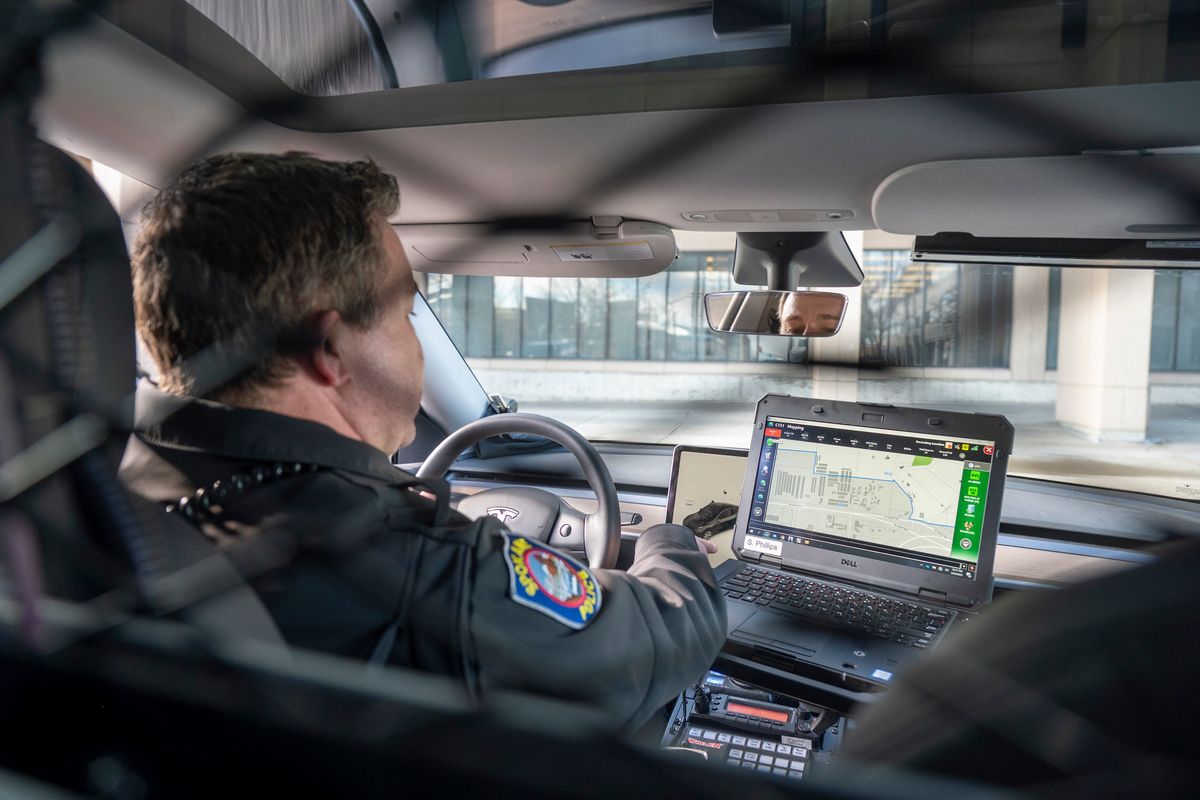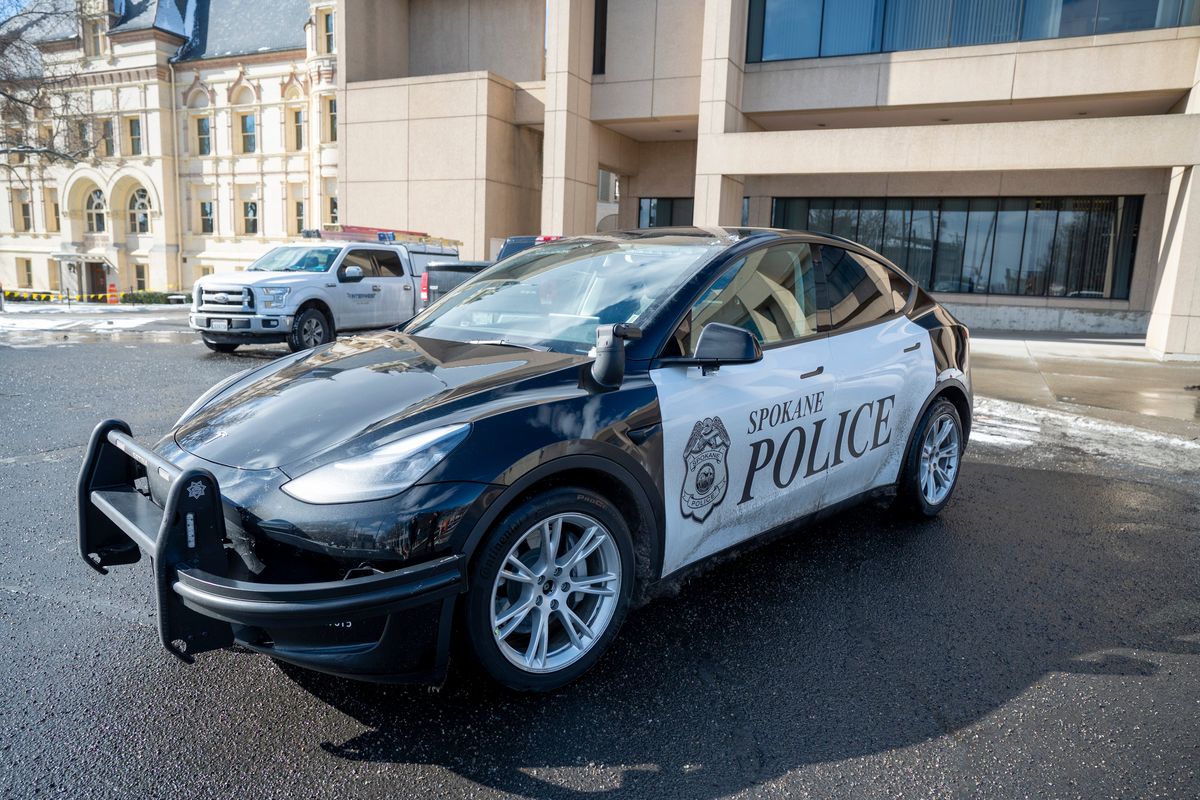Model why? Spokane police don’t want Teslas

The Tesla Model Y can accelerate from zero to 60 mph in as little as 31/2 seconds, all with electric power.
What it can’t do, according to Spokane Police Department leaders, is comfortably accommodate a police officer.
The Spokane Police Department has piloted two Teslas this year as the city looks to move toward an all-electric fleet of cars. The reviews are in, and they’re scathing.

“They’re not a suitable police car. They are too small. They are not designed for police work,” Maj. Michael McNab told the Spokane City Council’s Public Safety and Community Health Committee earlier this month.
That leaves the city in a bit of a conundrum.
The police department wants to buy 64 new vehicles this year to begin the process of replacing its aging fleet over the next decade. And it doesn’t want Teslas.
Police leaders recently showed several council members in-person the tight confines of the Teslas to bolster their argument.
The Spokane City Council – especially President Breean Beggs – insists that the city move toward electric options as required by both state and city law whenever feasible.
“If the Tesla isn’t the one you want, pick some you would like and try them out,” Beggs said.
But the police department prefers the ready availability of its more traditional Ford K8 hybrid SUVs. Although department leaders say they’re not opposed to future electric options, they don’t view Teslas – which were developed with regular citizens in mind, not police officers – as a suitable car for a cop on patrol.
The Teslas were bought by the city last March, but it took months to design, build and install equipment that would bring a standard Tesla to modern police standards – including a protective bumper and prisoner cage.
An employee survey identified numerous complaints about the Teslas, inside which officers found a tight squeeze. In the passenger side, for example, the officer’s laptop mount encroaches across the leg of whomever sits there.
It costs about $30,000 to fully outfit a Tesla as a patrol car, not including the cost of buying the vehicle, compared to about $8,000 to $15,000 for a K8 Hybrid, according to the department.
But even with those additional commissioning costs, the estimated five-year cost of ownership to the city is $101,000 for the Tesla and $99,000 for the K8 Hybrid, a negligible difference.
Beggs notes that electric cars are expected to last longer, and he believes that the Tesla would still have substantial savings over the hybrid.
Beggs isn’t attached to the Teslas. He’s attached to electrification.
Beggs is hesitant to heavily invest in gasoline-powered cars when more suitable electric options could be just around the corner. He pointed to the new, all-electric Ford F-150 Lightning, for example.
“Things continue to evolve. There’s better and better options,” Beggs said.
McNab outlined the current options, including the Lightning.
“For this 64-vehicle purchase, there isn’t a suitable electric vehicle solution, and if we were to buy any one of these alternatives we would just be experimenting with electric cars on a grander scale than we are with the two Teslas,” McNab said.
Beggs will continue to pursue electric options.
“The challenge is they keep looking for reasons to say no instead of how to accomplish” using electric vehicles, Beggs said. “That’s my frustration with the department.”